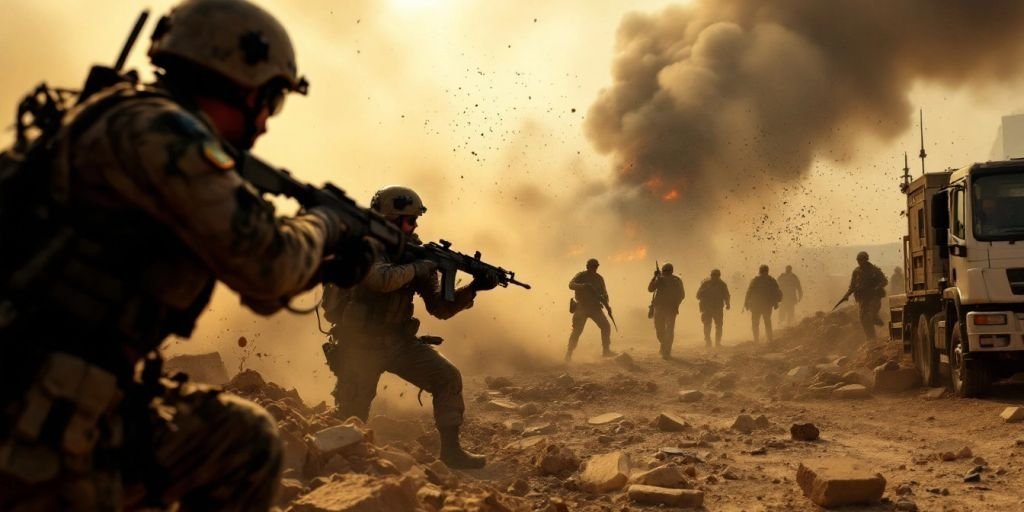In a recent escalation of tensions, Israel has encountered significant military threats from Hezbollah, a powerful militant group based in Lebanon. As this conflict unfolds, global attention has turned to the implications of this development. Notably, however, the Indian media’s relative silence on this issue has drawn attention, raising questions about media coverage and its role in shaping public awareness of critical geopolitical events.
Key Takeaways
- Intensifying Conflict: Israel faces a serious military challenge from Hezbollah, with potential global ramifications.
- Indian Media Silence: Unlike Western media, Indian news outlets have largely overlooked this significant issue.
- Global and Local Implications: Understanding the dynamics of this conflict is essential for an informed global perspective.
The Current Situation
The conflict between Israel and Hezbollah has intensified, with reports indicating that Hezbollah has launched a series of rocket strikes against Israeli positions. This situation has the potential to draw in various international players and impact regional stability. The escalation could lead to increased violence and have far-reaching effects on international relations, especially concerning energy markets and diplomatic ties.
Media Coverage: A Missing Narrative
While international media channels are extensively covering the developments between Israel and Hezbollah, the Indian media has remained relatively silent. This lack of coverage raises questions about the media’s role in providing comprehensive insights into significant global events, particularly those with potential repercussions on a global scale.
Why Is This Important?
Understanding the dynamics of the Israel-Hezbollah conflict is crucial for several reasons:
- Geopolitical Implications: An escalation in this conflict could affect global oil prices and international relations, particularly among countries in the Gulf and the Middle East.
- Security Concerns: Increased violence in the region could have impacts on neighboring countries, destabilizing an already tense region.
- Public Awareness: Media coverage serves to inform the public and enable a nuanced understanding of international relations, especially in cases that involve allies or regions with which India has significant diplomatic ties.
Social Media’s Influence on Geopolitical Perceptions
Social media platforms play a dual role in this context, providing both real-time updates and a fertile ground for misinformation. While these platforms facilitate swift information flow, they also pose challenges in verifying credible sources. Just as social media has become a tool for political influence in elections, as seen in the United States and elsewhere, its role in international conflicts highlights the need for media literacy and critical thinking.
Case Studies in Media’s Role
In situations like the U.S. presidential elections, social media has been shown to amplify narratives and shape perceptions. Similarly, in the case of the Israel-Hezbollah conflict, Western media coverage influences public opinion and potentially the actions of policymakers. Indian media’s absence in this narrative may limit the Indian public’s understanding of these events and their broader implications.
Conclusion
As the situation between Israel and Hezbollah unfolds, it is essential for Indian media to engage more deeply with these developments, offering comprehensive coverage and critical analysis. The intersection of media, international politics, and public awareness is a complex landscape that requires vigilance. Informed reporting and media literacy empower the public to understand the stakes involved in international conflicts, ensuring a society that is well-prepared to engage with global issues.

This is really good
This is really superb
This is very nice
This is really nice
👍super
This is really nice
Who wrote this?